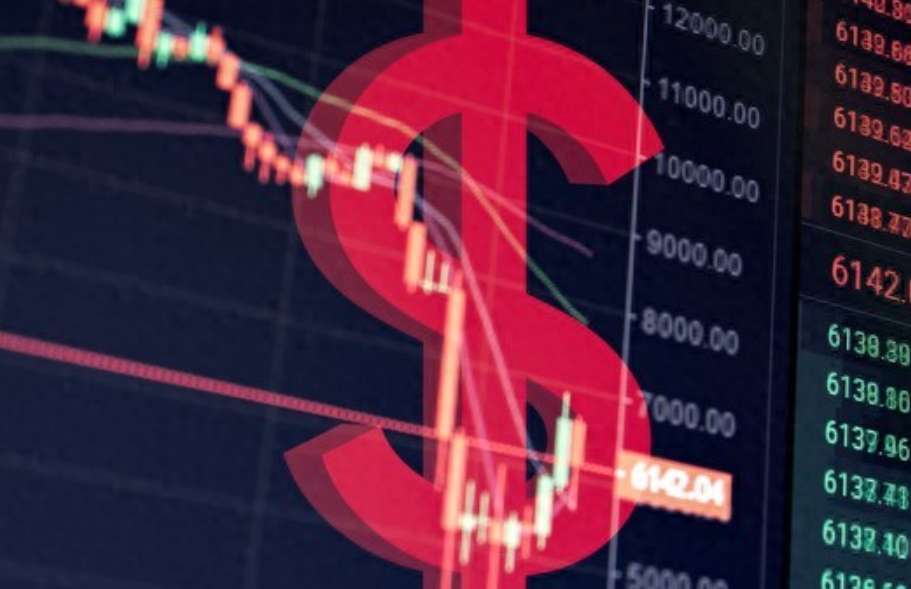Fund managers from Kinea Investimentos, Ace Capital, and Itau Asset Management have taken a cautious yet confident stance on the rising trend of swap rates in Chile, a reflection of persistent inflationary pressures and a recovering economy. This optimism is underscored by their interpretation of recent economic indicators, which suggest a shift in prospective monetary policy. However, this bet is not without its complexities.
Contrary to the expectations of many economists surveyed by the Central Bank of Chile, who anticipated a potential decline in borrowing costs, the ongoing inflation dynamics are capturing the attention of financial professionals. The economists did not forecast an increase in interest rates for this year, with some even predicting two potential rate cuts within the next twelve months. Yet, a recent meeting of the Central Bank, whose minutes highlighted an enduring inflation concern, suggests that the policymakers are prepared to tackle inflation head-on, even if it means adjusting interest rates upward before their next scheduled meeting in September.
Rodrigo Gaze, founding partner and portfolio manager at Ace Capital, articulated a sentiment resonating among investors: "Inflation is sticking more stubbornly than the central bank had anticipated. The recent hawkish minutes from the meeting indicate that policymakers may even consider rate hikes sooner than expected."
This tension within the monetary landscape became evident as two-year swap rates saw a significant uptick, jumping 16.75 basis points to reach a nine-month high—the most substantial rise since last March. Such volatility speaks to the rising tides of inflation that Chile faces, and which echo trends noted in other Latin American economies as they grapple with similar challenges.
Brazil is noteworthy in this context; it was one of the earliest developing nations to begin increasing borrowing costs, cumulatively raising rates by 275 basis points since September of last year. As the market’s gaze now shifts to Chile, many are left to ponder: Who will follow suit next?

In a recent investors' report, Ace Capital asserted, "We believe Chile will be the next emerging market to resume its rate-hiking cycle." This position stems from the events of January, when Chile's policymakers voted unanimously to maintain borrowing costs at 5%, marking the first pause in rate hikes since July of the previous year. This decision came on the heels of significant inflationary pressures, amidst a backdrop of a depreciating peso and rising electricity costs that stymied the pace toward the central bank's inflation target of 3%.
However, shortly after this pause, January's consumer price index registered a striking rise of 1.1%, the fastest growth seen in two years—culminating in an annual inflation rate accelerating to 4.9%. The implications of this are profound; although rates were held steady, subsequent central bank minutes conveyed a more hawkish sentiment than many anticipated. Policymakers emphasized a willingness to apply "appropriate stringent measures," indicating that rate increases are indeed on the table if inflation remains high.
Currently, swap rates are indicating expectations of an increase of about 23 basis points within the next year. Since the beginning of the year, the one-year swap rate in Chile has climbed over 25 basis points. These movements in the market hint at a growing consensus among traders that higher borrowing costs may prove inevitable.
Additionally, algorithmic traders, known for their ability to capital seize on trends, are playing an active role in trading Chile's interest rate curve. Analysts at Bank of America, including strategist Cristian Gonzalez Rojas, pointed out that Commodity Trading Advisors (CTAs) are likely making bets on rising swap rates in the middle of the Chilean interest rate curve.
This raises significant questions: Will the Chilean yield curve sufficiently reflect a hike of 75 basis points? Gordian Kaymen, head of emerging market sovereign strategies at Standard Chartered, believes it is possible, yet expresses skepticism about exceeding that level unless economic data takes a turn for the worse.
Further complicating matters, the disparity between the perspectives of economists and traders on inflation trajectories looms large. Marco Galardo, deputy manager of fixed income at BICE Inversiones, noted that differing views on inflation's persistence signal a broader uncertainty. “The market perceives inflation as likely to remain elevated for a longer duration,” Galardo remarked.
Nonetheless, the economists' forecasts of potential rate cuts may paradoxically act as a catalyst for increasing borrowing costs. Gaze pointed out that were two-year inflation expectations to rise to 3.1%—the highest rate since February 2023—this would prompt policymakers to consider intervening sooner than projected.
He underscores the proactive stance of the Chilean central bank, noting that they are historically known for their bold approaches to inflation management. This was echoed last Friday when a latest central bank survey revealed traders adjusting their forecasts for key rates 12 months out from 4.75% to 5%. Additionally, the proportion of traders expecting a rate hike in April shifted from negligible to 7.7%, signifying a noteworthy shift in sentiment.
Yet, external factors are also at play. The Federal Reserve's policy decisions weigh heavily on emerging market economies like Chile. With analysts recalibrating expectations for a rate cut in the U.S. this year, coupled with trade tensions exacerbated by presidential decisions, the Chilean peso faces pronounced strain. Last Friday, disappointing U.S. retail sales data prompted a pullback in Chilean swap rates from recent highs, reflecting the global interconnectedness of these markets.
As these dynamics evolve, investors are set to scrutinize forthcoming economic data from Chile for signs of easing inflation or continued economic expansion. Notably, Chile's economic activity saw a year-on-year growth of 6.6% in December, the fastest pace witnessed in nearly three years, which paints a complex economic picture.
Kaymen remains contemplative, stating, “I personally still do not believe the central bank will hike rates, but I could also be wrong in my judgment. I think after the next set of data releases, we will gain clearer insights.” As the Chilean economy navigates these multifaceted challenges, the balancing act between inflation control, market expectations, and external pressures remains a matter of pivotal importance.